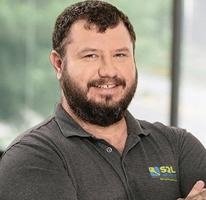I decided to start a series of blogs where I interview key people in the SQL Server community. Instead of me asking technical questions, I plan on asking about their outlook on the future, books they read (non-fiction and/or technical), and their overall thoughts on where technology (mainly SQL Server) is headed. You can find more interviews here.
Next up: John Q. Martin (b | t):

Mohammad: Do you think people who dismiss the cloud as a “fad” or just don’t take it serious enough to learn about it (i.e. Azure, AWS, etc), will be in a tough spot to find a job 5 years from now?
John: The trend I am seeing is for more of a hybrid data platform environment where there is a diverse mix of SQL Server both on-premises and in cloud platforms. I am seeing more and more companies look at the Platform as a Service offerings that are on offer such as Azure SQL Database, Amazon RDS for SQL Server, and Azure SQL Database Managed Instance. The latter option with its high degree of parity with the retail SQL Server product makes the jump from managing full blown SQL Servers to PaaS semi-manged platforms a lot more viable.
Another trend that I am seeing is that companies are moving to a more heterogenous data platform environment where it is more than just SQL Server in play. While SQL Server and relational engines rule the roost for many line of business applications there is a big move to document database platforms like Cosmos and MongoDB, as well as other technologies like Spark, Databricks, Hadoop, Casandra, etc. The key thing here being to use the right technology for the right role in the data platform solutions, a great example being the Modern Data Warehousing pattern using Lambda architecture. You can find out more by watching this fantastic session by Simon Whiteley (t|b) from Adatis thanks to GroupBy conference.
Mohammad: Do you ever see the traditional SQL Server DBA role being replaced/eliminated?
John: I can never see the DBA being eliminated, I do however see the role evolving with the technology that we use for data platform systems. Unlike Storage or Networking which are being made self-serve by cloud and appliance vendors, there is always going to be a need to manage data. It is easy to setup a data system that collects vast quantities of data. However, it is difficult to do it well and make it perform while incurring minimum overheads in cost or resource use. I see the role of the DBA becoming more of a Data Platform Engineer where we need to go beyond the relational engine of SQL Server and will need to guide businesses in when to use and when not to use SQL Server. Along with needing to learn core cloud platform skills around networking, identity, and storage in addition to adding other data platform technologies to our skillset.
Mohammad: What are you most proud of doing/accomplishing for the SQL Server community so far in your career?
John: There is no one event that sticks in the mind when it comes to the community. The one thing that I feel proud of is that I have been able to help people understand the topics that I speak and blog about. When I was starting out I used to attend the user group events held at Microsoft’s offices in Reading and that was how I got really interested and learned my trade. The skills and advice I got from the speakers and other attendees is what helped me get where I am, being part of that and helping others is what is important to me.
Mohammad: What non-technical/non-fiction book/s would you recommend? If you only read technical books…what do you recommend?
John: I very rarely read nonfiction or non-technical books these days, though the two that I return to every now and then are ‘The Sword & the Mind’ and Descartes Meditations on First Philosophy. Neither of them are going to be in any best seller lists any time soon, but they are a challenging read and each time I go back to them I gain an appreciation on how to focus my mind, form better arguments, and alter the way I think to meet new challenges.
Mohammad: For someone who’s career focus has been on one aspect of SQL Server (i.e. Database Engine), do you think it would be wise for them to become a “jack of all trades” by starting to learn, SSRS/IS/Azure, etc. or remain focused on their area of expertise? In another words, which would you say is more valuable? mile wide / inch deep or inch wide / mile deep?
John: I would say that it depends (can you tell I was a DBA earlier in my career?). I think that there is a strong need to expand a skillset to have an appreciation and solid foundation in networking, storage, and identity management that will roll into working with cloud platforms whether it is Azure, Amazon, or Google. I would also recommend building on this foundation in areas that you find interesting to achieve a higher understanding of those areas. Even the database engine is so large now that it is difficult to know all of that. I would point out security, database design principals, and performance tuning as areas that are likely to be very important over the coming years.
That was SO informative and practical . Thank you MR Darab for this awesome interview .